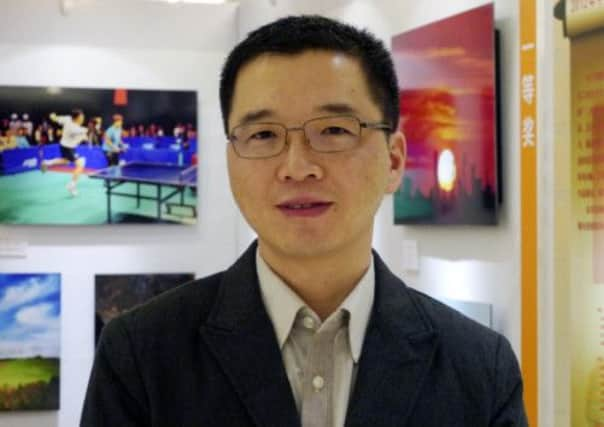Chinese businessman’s secret death sparks outcry


Yu Qiyi had a promising career in a government investment company when he disappeared on his way home from a business trip on 1 March. Some 38 days later, the bespectacled, boyish-looking engineer died after turning up at a hospital emaciated, with bruises on his arms and thighs, dark welts on his buttocks and scrapes on his feet and shins.
In between, Mr Yu was held by investigators from the Communist Party in secret detention. Since his death last week, he has become a rallying point for reformers who want to get rid of a system that is prone to abuse but that Chinese leaders depend on to keep members in line.
Advertisement
Hide AdAdvertisement
Hide AdPhotos of Mr Yu’s body have been shared around the internet, prompting thousands of comments from ordinary Chinese citizens on popular Twitter-like microblogs, as well as from journalist in the state media.
“If power is not locked in the cage of institutions, everyone will find it hard to feel secure. From ordinary citizens to leading cadres, everyone could become a victim,” reporter Chen Yuming of the official Xinhua News Agency posted on the agency’s account.
Mr Yu’s family says the injuries are proof he was beaten, starved and tortured.
“He was thin like a beggar,” said Wu Qian, his ex-wife with whom he still lived, describing seeing Mr Yu on 9 April in a local hospital. “Anywhere that we could see, there were injuries on his body.”
Ms Wu said the hospital’s medical records cited drowning as a potential cause of death.
A brief official statement carried by state media said Mr Yu had an accident while being held by the party’s local inspectors and died in hospital after rescue attempts failed. It said an investigation was under way.
Mr Yu’s case is drawing attention to a feared tool of China’s communist rule – the detention of party members by internal investigators, known as shuanggui.
It operates beyond the law, with people held for weeks or months, with no regard for the legal protections Chinese citizens are supposed to be entitled to.
Advertisement
Hide AdAdvertisement
Hide AdShen Liangqing, a former prosecutor who has become a government critic and has investigated the detention system, said: “Interrogators say, ‘We will beat you to death, take your corpse down the mountain and say you committed suicide by jumping.’ That’s how they threaten them.”
Defenders of the system say party investigators need such powers to prevent officials suspected of wrong-doing from using their influence to block inquiries. By keeping them in solitary confinement, the argument goes, officials are unable contact others who might be implicated, or police or judges they might have influence over.
Mr Yu was wanted for questioning for possible corruption in a land deal when he was picked up by investigators.
Run by the party’s Discipline Inspection Commission, the investigations have time limits of up to six months and usually take place in hotels or guesthouses, according to a 2010 book on arbitrary detention in China by legal scholar Flora Sapio.
Detainees are guarded even when they use the toilet, Ms Sapio wrote, and are subject to sleep deprivation and beatings.
“The use of shuanggui delivers not justice, but selective and vindictive prosecutions often based on torture, and will do little to straighten out China’s rotten officialdom,” Human Rights Watch researcher Maya Wang said.
Ms Wu said she hoped that her ex-husband’s death would not be in vain.
“I want to restore the truth and find justice for him,” she said. “I hope he might be able to stir debate about the current system … Because for everyone else, they might suffer the same fate as him some day.”